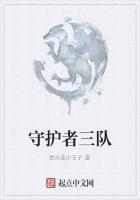But at least he has been among the few who saw the divine parentage of these things, and knew that where there is smoke there is fire--that is, that wherever there is the foulest of things, there also is the purest.
Above all, he has had something to say, a definite view of things to utter, and that always means that a man is fearless and faces everything.
For the moment we have a view of the universe, we possess it.
Now, the message of Rudyard Kipling, that upon which he has really concentrated, is the only thing worth worrying about in him or in any other man. He has often written bad poetry, like Wordsworth. He has often said silly things, like Plato.
He has often given way to mere political hysteria, like Gladstone.
But no one can reasonably doubt that he means steadily and sincerely to say something, and the only serious question is, What is that which he has tried to say? Perhaps the best way of stating this fairly will be to begin with that element which has been most insisted by himself and by his opponents--I mean his interest in militari**.
But when we are seeking for the real merits of a man it is unwise to go to his enemies, and much more foolish to go to himself.
Now, Mr. Kipling is certainly wrong in his worship of militari**, but his opponents are, generally speaking, quite as wrong as he.
The evil of militari** is not that it shows certain men to be fierce and haughty and excessively warlike. The evil of militari** is that it shows most men to be tame and timid and excessively peaceable.
The professional soldier gains more and more power as the general courage of a community declines. Thus the Pretorian guard became more and more important in Rome as Rome became more and more luxurious and feeble. The military man gains the civil power in proportion as the civilian loses the military virtues.
And as it was in ancient Rome so it is in contemporary Europe.
There never was a time when nations were more militarist.
There never was a time when men were less brave. All ages and all epics have sung of arms and the man; but we have effected simultaneously the deterioration of the man and the fantastic perfection of the arms.
Militari** demonstrated the decadence of Rome, and it demonstrates the decadence of Prussia.
And unconsciously Mr. Kipling has proved this, and proved it admirably.
For in so far as his work is earnestly understood the military trade does not by any means emerge as the most important or attractive.
He has not written so well about soldiers as he has about railway men or bridge builders, or even journalists.
The fact is that what attracts Mr. Kipling to militari** is not the idea of courage, but the idea of discipline.
There was far more courage to the square mile in the Middle Ages, when no king had a standing army, but every man had a bow or sword.
But the fascination of the standing army upon Mr. Kipling is not courage, which scarcely interests him, but discipline, which is, when all is said and done, his primary theme. The modern army is not a miracle of courage; it has not enough opportunities, owing to the cowardice of everybody else. But it is really a miracle of organization, and that is the truly Kiplingite ideal.
Kipling's subject is not that valour which properly belongs to war, but that interdependence and efficiency which belongs quite as much to engineers, or sailors, or mules, or railway engines.
And thus it is that when he writes of engineers, or sailors, or mules, or steam-engines, he writes at his best. The real poetry, the "true romance" which Mr. Kipling has taught, is the romance of the division of labour and the discipline of all the trades.
He sings the arts of peace much more accurately than the arts of war.
And his main contention is vital and valuable. Every thing is military in the sense that everything depends upon obedience. There is no perfectly epicurean corner; there is no perfectly irresponsible place.
Everywhere men have made the way for us with sweat and submission.
We may fling ourselves into a hammock in a fit of divine carelessness.
But we are glad that the net-maker did not make the hammock in a fit of divine carelessness. We may jump upon a child's rocking-horse for a joke.
But we are glad that the carpenter did not leave the legs of it unglued for a joke. So far from having merely preached that a soldier cleaning his side-arm is to be adored because he is military, Kipling at his best and clearest has preached that the baker baking loaves and the tailor cutting coats is as military as anybody.
Being devoted to this multitudinous vision of duty, Mr. Kipling is naturally a cosmopolitan. He happens to find his examples in the British Empire, but almost any other empire would do as well, or, indeed, any other highly civilized country.
That which he admires in the British army he would find even more apparent in the German army; that which he desires in the British police he would find flourishing, in the French police.
The ideal of discipline is not the whole of life, but it is spread over the whole of the world. And the worship of it tends to confirm in Mr. Kipling a certain note of worldly wisdom, of the experience of the wanderer, which is one of the genuine charms of his best work.
The great gap in his mind is what may be roughly called the lack of patriotism--that is to say, he lacks altogether the faculty of attaching himself to any cause or community finally and tragically; for all finality must be tragic. He admires England, but he does not love her;for we admire things with reasons, but love them without reasons.
He admires England because she is strong, not because she is English.















